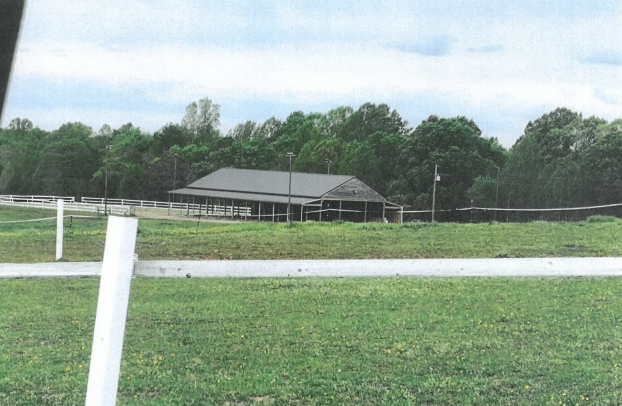State approves conditional water permits
Published 10:28 am Thursday, December 14, 2017
The Virginia State Water Control Board approved Tuesday an amended certification for the proposed Atlantic Coast Pipeline (ACP) that is conditional both on implementing several conditions to strengthen water quality protections and on receiving other state approvals before the certification takes effect.
“We will work closely with the Virginia Department of Environmental Quality to complete all remaining approvals in a timely manner and ensure we meet all conditions of the certification,” said Dominion Energy spokesperson Aaron Ruby.
The move follows the board’s vote last week approving the Mountain Valley Pipeline, but without the conditional approval.
The 600-mile ACP natural gas project will start in West Virginia, spanning Virginia and ending in North Carolina. The pipeline’s route is set to span Buckingham County.
Ruby said the approval of the certification for the ACP is “a very significant milestone for the project and another major step toward final approval.”
“The board reached its decision after the most thorough environmental review of any infrastructure project in Virginia history,” Ruby said. “After more than three years of exhaustive study by state agencies and extensive public input, the board concluded that the project will preserve Virginia’s water quality under stringent state standards.”
He said state and federal inspectors will carefully monitor ACP work throughout construction to ensure strict compliance with the law.
“The protective measures we’ve put in place and the regulatory oversight we’re receiving should assure all Virginians that the pipeline will be built safely and in a way that preserves the state’s water quality,” Ruby said. “We commend the board members and DEQ staff for the years of hard work and careful study they’ve dedicated to reviewing the project. We also appreciate the thoughtful and constructive input provided by members of the public.”
Joseph Jeeva Abbate, director of environmental services for Yogaville, said there was substantial concern voiced by hundreds of people who came to the hearings regarding water due to the lack of information provided by the ACP.
“I personally asked the board to take the time to please gather the complete information that is required according to their own rules from the ACP to make the correct certification,” Abbate said. “They essentially discussed it in front of us, and there was unanimous agreement on the board that they didn’t have enough data. The question that they discussed was, should they give a permit at all? Because, remarkably, three of the board members were against providing the permit.”
The vote from the board was 4-3 regarding the certifications.
“They were only willing to provide a conditional permit, which doesn’t allow the ACP to go forward until they have provided the stormwater and sediment mitigation plans and some additional information that is not in their application and is necessary for the board to make a final permit,” Abbate said. “Essentially, the board agreed enough about the concerns that were raised that they were willing to postpone the ACP from getting a permit to allow it to move forward.”
He said that wasn’t exactly what those against the ACP wanted.
“But it is a remarkable action in that they weren’t willing to provide the go-ahead, and that means that according to a DEQ official yesterday, who gave an interview on camera, they will not be able to provide a complete permit until all that information is provided, and they expect it to be in a March, April time frame.”
In January 2017, county supervisors approved a special use permit for a hotly-contested 53,783-horsepower compressor station, slated to be constructed between Shelton Store and Union Hill roads on Route 56. The project’s development has drawn protest from residents in Buckingham.
Tuesday’s conditional approval followed a series of public comment sessions over the summer, one of which took place at Longwood University. The hearing at Longwood included about 23 people who spoke in favor of the ACP and approved the draft water quality certifications, while 51 spoke against the pipeline and in support of denying the certifications.
The Federal Energy Regulatory Commission (FERC) approved a Certificate of Public Convenience and Necessity for the ACP and Supply Header on Oct. 13. According to Ruby, the FERC approval is the main regulatory approval needed prior to the beginning of construction.
Friends of Buckingham filed a Request for Rehearing on Nov. 13 with FERC regarding FERC’s decision to issue a public convenience and necessity certificate for the ACP.
“A Request for Rehearing is the next step we are taking legally to stop the (ACP),” said Heidi Dhivya Berthoud, of Friends of Buckingham. “We have done this for our friends and neighbors so that we can all preserve our ability to take further legal action against FERC for the crimes they are committing against Buckingham County.”
Friends of Buckingham also requested a Motion for Stay, which, if successful, would halt any progress on the project.
“FERC may rule on the Request for Rehearing and the Stay, or it may choose not to,” Berthoud said in a press release. “But no matter the outcome, this will open the door for further litigation.”
According to the release, the Friends of Buckingham filing asserts that FERC and Dominion have failed to provide sufficient analysis and information on the environmental, cultural, historical, economic and socio-economic impacts of the project in Buckingham County.







